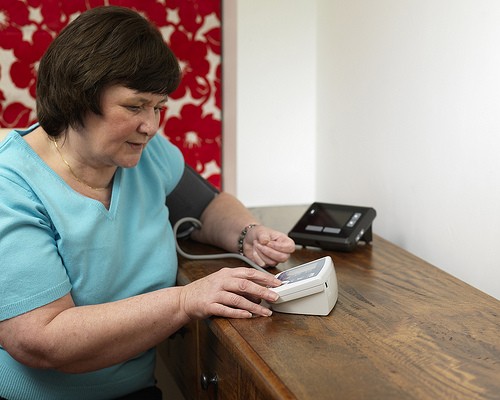
Certain medications used to treat high blood pressure can increase the risk of breast cancer, a new study says.
For the study, Dr Christopher Li and colleagues from the Fred Hutchinson Cancer Research Center in Seattle, US, looked at more than 2,700 women aged between 55 and 74 years. Among them, 1,907 women had breast cancer.
Researchers found that using the drugs, calcium-channel blockers, for 10 or more years placed postmenopausal women at two and half times greater risk of developing the deadly disease.
"We looked at these drugs because people who use them to manage their blood pressure are usually on them for the rest of their lives," lead author of the study, Li told WebMD. "There has been some evidence suggesting that some of these antihypertensives may be related to breast cancer risk."
However, both researchers and health experts recommended more solid evidence before discontinuing the drug completely. "This was a good study, but it doesn't mean doctors should stop prescribing calcium channel blockers, because it is an observational study," said Patricia Coogan, a research professor at the Slone Epidemiology Center at Boston University. "I don't think women should be concerned yet. These findings need to be replicated before anything in clinical practice is undertaken."
The study has been published in the journal JAMA Internal Medicine.
Calcium-channel blockers are one of the widely used drugs to manage blood pressure by blocking the entry of calcium into the cells of heart and blood vessel walls. They are also known to help relax blood vessels through muscle cells in the arterial walls. According to health experts these cell changes can pave the way to the development of breast cancer, The Potpouri reported.
Felodipine, Nisoldipine (Sular), Nifedipine (Procardia, Procardia XL, Adalat CC), Amlodipine (Norvasc), Diltiazem (Cardizem LA, Tiazac), Isradipine (DynaCirc CR) and Verapamil (Calan, Verelan, Covera-HS) are some of the commonly used calcium-channel blockers.





!['Kaise ho bhai..': PM Modi shook hands with Akshay Kumar at a media summit in Delhi [Watch]](https://data1.ibtimes.co.in/en/full/806317/kaise-ho-bhai-pm-modi-shook-hands-akshay-kumar-media-summit-delhi-watch.jpg?w=220&h=138)











